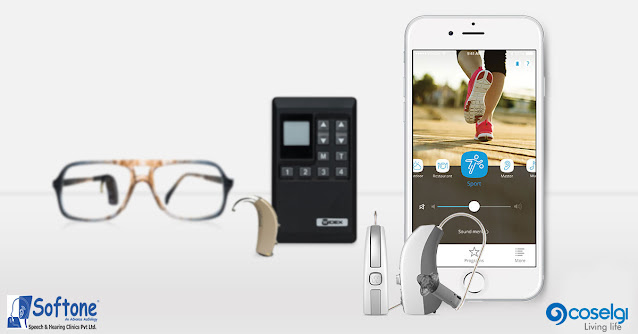Taking Your Child to the Audiologist
You could take a lot of things for granted in life. One of them is hearing, and adjusting to hearing loss can be difficult. The best course of action if you find yourself in this situation with your child is to speak with an audiologist to see what kind of hearing aid could work best for them.
The Expected Tests
Your youngster will have to take a number of tests at the audiologist. Some
of these may be carried out at an appointment without you being present such as
online hearing tests, while others may normally be done by a parent or
caregiver. Several common tests are listed below:
An assessment of hearing sensitivity and discrimination skills is
audiometry. In addition to the more complex brain stem auditory evoked
potentials, it also assesses bone and air conduction (BAEP). Additionally, the
audiologist will assess your child's reactions to click stimuli at various
frequencies.
Tympanometry involves inserting a probe into your child's ear canal, which
will create sound at various frequencies, to measure the mobility and rigidity
of the eardrum. Additionally, it evaluates the middle ear's functionality,
checking for fluid in the middle ear cavity.
This test measures your child's reactions to loud clicking noises in order
to demonstrate the middle and inner ear's functionality. It can also assist in
figuring out whether the brain may be involved.
Otoacoustic emissions (OAEs) are the inner ear's inaudible sounds that can
be detected with sensitive equipment. They are used to confirm test results
from previous exams like audiometry or tympanometry and they give information
about how well your child's cochlea is working.
How to Make Them Ready, willing and Calm
Making ensuring your child can express their emotions to you is the first
thing you should do for them. After asking them, make them feel welcome by
joking about how much fun their visit will be. Play games with them beforehand
or do anything else that will divert their attention from the reason they are
there. Find out their favorite activities. Introduce them to each member of the
staff who will be assisting in preparing your child for their hearing test by
stopping by the office in advance.
Options for Treatment
Hearing loss can be treated in a variety of ways. Age, hearing loss,
cognitive development, and personality traits are just a few of the variables
that will determine which type is the greatest fit. Unfortunately, there isn't
enough data to determine with any certainty the kind of therapy children with a
given diagnosis or level or kind of deafness ought to get.
Using a latest hearing aids to amplify sounds is the first option. A ear
machine enhances sound so that the youngster can hear what is going on around
them more easily. When youngsters have some residual or unaided hearing but not
enough to use it effectively in daily life, hearing aids are often advised.



.jpeg)
Comments
Post a Comment